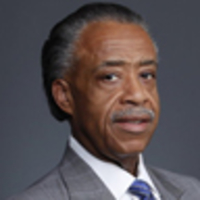It's difficult to watch someone get atrociously beaten and not feel something. To bear witness as kicks, punches, batons, and pure evil rain down on a defenseless person isn't something most of us would ever want to experience. Yet we all did.
In 1991, Rodney King became a household name for the wrong reason: as a victim of police brutality. His brutal beating at the hands of LAPD officers and the subsequent failure of the courts to hold the accused officers responsible became a symbol for the modern day civil-rights struggle. And his subsequent personal journey was emblematic of strength, perseverance, growth, and hope. Today, we remember him.
“Can we all get along?" was King’s phrase heard around the world as the devastating L.A. riots occurred in 1992. An ordinary man who never asked to be struck by police more than 50 times and who played no part in the verdict against the accused officers, suddenly found himself thrust into the limelight during one of the worst racial incidents in this country's history. He never sought the role of national leadership, but he picked up the mantle when we needed to hear words of peace and calm the most. He was chosen, and he delivered.
I've been fighting against police brutality for most of my life. Even before King's horrific beating, I'd worked to raise awareness and bring justice to victims of exactly this sort of abuse. But the unprecedented videotaping of King's police beating was the first time America was forced to come to terms with this dreadful reality. It's easy to ignore or dismiss facts and figures, but when the ills of society are reflected back to us like a mirror image, it truly is difficult to deny. The individual who filmed the infamous incident, George Holliday, knew he was observing something very disturbing when he reached for his camera. And subsequently, all of us—regardless of our backgrounds—had to come to terms with the unpleasant truth behind racial profiling and police brutality.
Just a few months ago, King appeared on my MSNBC show Politics Nation and my nationally syndicated radio show Keepin' It Real to discuss his new book, The Riot Within: My Journey From Rebellion to Redemption, as well as his thoughts on the L.A. riots 20 years later. He discussed his own personal demons, shortcomings, and growth. Though his body still bore the marks of the beating decades later, he utilized his remaining time for further progression, while showing all of us how an ordinary man can be called upon to open an entire nation's eyes to its own failings. God used this human being with flaws to show us how a society failed to deal with its own flaws.
“It’s new modern days, you know. We can get more by coming together and figuring how to go about these issues rather than burning up our own cities, or rather than looking at different races like holding a grudge and we don’t even know why we’re holding that grudge,” King told me. It’s been a long road to get to this point in life as a human being. There’s no need of thinking that violence is going to get us anywhere. We should be more civilized than that and come together.”

Rodney King was pushed onto the world stage at a pivotal moment. Just as the images of Bull Connor's dogs and water hoses in Birmingham symbolized the civil-rights movement of the 1960s, King's beating came to symbolize modern-day racial profiling and police brutality. He took his beating, and self-inflicted damage that we will never know of.
Without seeking it, King led an entire nation to deal with its harsh reality, the one that lies beneath the surface of political correctness. At a time of utter chaos, he urged reconciliation and peace. Today, we hope that he will finally find eternal peace himself.





